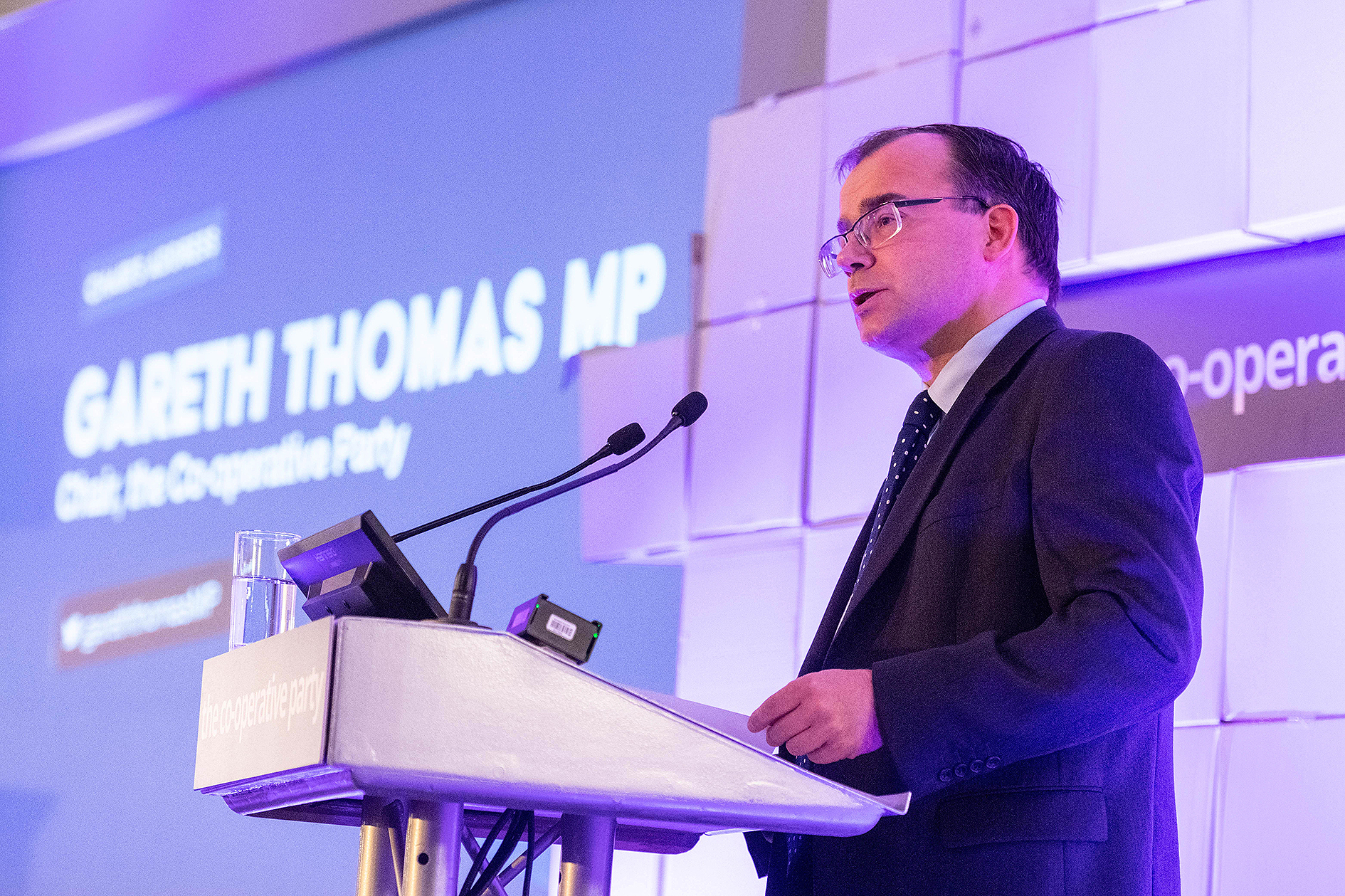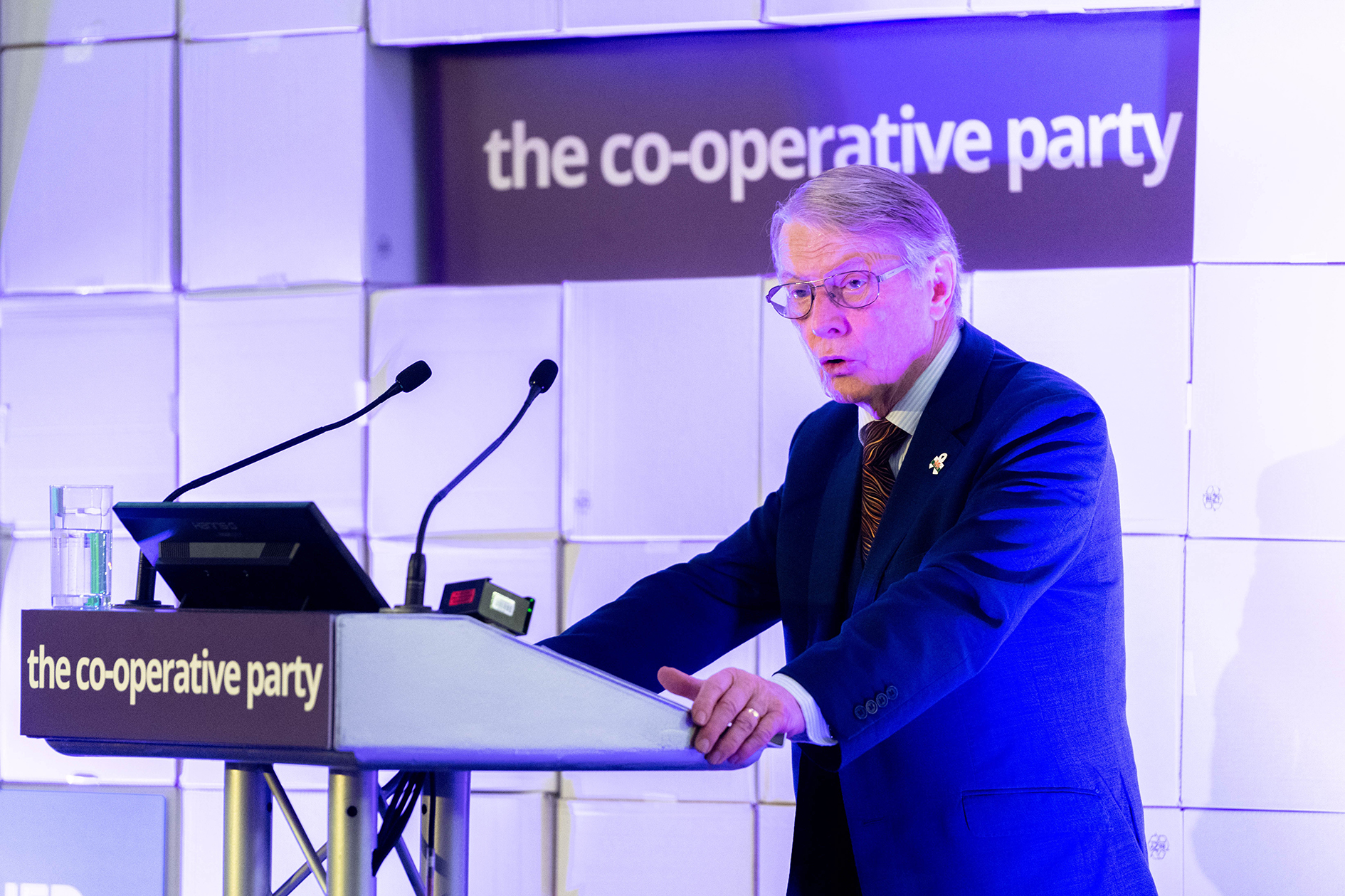Delegates at the Co-operative Party’s annual party conference, held in Bristol this weekend, voted to put the Party’s support behind the campaign for a public vote on whether or not the UK should leave the EU on the final terms agreed between the Government and the EU.
The Co-operative Party, which is a sister party to the UK’s Labour Party, voted in favour of continued access to the EU Single Market and rejected the government’s argument that no deal is better than a bad deal.
Delegates also approved a policy stating that if no agreement was reached with the EU by 29 March 2019, an extension to Article 50 should be sought.
“Members of the Co-operative Party have today voted to put the British people back at the heart of the Brexit process, by backing a people’s vote on the final Brexit deal,” said Gareth Thomas MP, Co-operative Party chair.
“Our Party is also clear that no deal is not an option.”

Mr Thomas added: “As we work towards building a Britain where wealth and power are shared, it is vital that Brexit does not lead Britain down a path of greater inequality, insecurity and isolation. Instead we need a Britain with co-operative values of democracy, equality and solidarity at its heart. This is what is at stake.
“We call on the prime minister to listen to the growing number of people and organisations who are saying the people should be in the driving seat.”
The vote followed a debate on Brexit at the conference, which was preceded by a breakfast session on the EU by Labour peer Lord Adonis, a prominent remain campaigner.
Alun Michael, a Labour-Co-op veteran who served in Tony Blair’s government and now holds the post of South Wales Police and Crime Commissioner, told the conference that the co-op movement needed a supportive framework in order to thrive, and warned the Brexit put this in jeopardy.
Related: Main report from Co-op Party Conference
He said it was important to protect workers’ rights, Fairtrade and international development, “and not have a botched Tory Brexit take us on a race to the bottom.”
Calling for an option to remain in the EU to be put on the table, he said: “A bad deal must be rejected but that doesn’t mean a no deal.”

Sally Chicken, president of the East of England Co-operative, said it was important to at least mitigate the impact of Brexit by protecting the right of UK citizens to live and work in Europe.
Chris Wills, from the Manchester Co-op Party, said Brexit left him worried “about how divided we are as a country”, observing that while the city of Manchester voted to remain, the surrounding towns in Greater Manchester voted to leave.
“I worry that these divisions have widened,” he added, and said he feared that those traditional Labour areas would be hit hardest by Brexit, leaving them susceptible to “siren voices from the far right”.
He called for a co-operative approach to healing the divisions, which would be a more effective way to “give back control to communities”.
Dame Pauline Green, whose long list of past roles in the co-op movement include serving as Labour / Co-operative MEP and leading the Parliamentary Group of the Party of European Socialists, made a defiant call for a People’s Vote, and said she refused to accept such a move was “undemocratic”, arguing that Brexiters would have continued to campaign if they had lost the referendum.
She said the EU played an important role in ensuring international peace and co-operation, adding: “I’d rather send the next generation to ‘jaw jaw jaw’ in Europe, not send them marching to ‘war war war’.”
Related: How can co-ops respond to populist movements like Brexit?
In his keynote speech to the conference, Vaughan Gething, cabinet secretary for health, wellbeing and sport on the Welsh government, said: “There is no bigger issue than our relationship with Europe.
“It’s not just an economic choice, it is a social choice. It is about who we are.We should lead, rather than follow the people’s vote campaign. It is an issue of generational importance … I am not prepared to stand here and watch the Tories destroy our nation’s future.”
He added: “There is no can guarantee we will win, and no guarantee there will be a people’s vote, but you can guarantee that if we do not stand up and fight for one, it will not happen.”
Full wording of statements approved by conference
1. As a proudly internationalist party that believes peace and prosperity for all are best achieved via co-operation, the Co-operative Party advocated staying in the European Union during the referendum in 2016. As we go forward, it continues to be in the UK’s best interests to have the closest possible relationship with our European neighbours and the institutions of the EU in order to minimise the negative impacts on communities, the economy and our role in the world.
2. The Government’s assertion that no deal is better than a bad deal is dangerous and irresponsible. The Government should seek the best possible exit deal, and future relationship, for the UK and if no agreement is reached by 29th March 2019 then an extension to the Article 50 deadline should be sought to prevent the damaging consequences of crashing out of the EU with no transitional arrangements in place.
3. The Government has mishandled the Brexit negotiations from the beginning. The Prime Minister has spent more time negotiating within her own Party than with the EU. The Government has sought to sideline Parliament, which is unacceptable. It is right that Parliament will have a meaningful vote on the terms of any agreement that is reached. If the Government’s proposal does not command the support of the House, a General Election should be called to enable a new Government to take up the reins of the negotiations.
4. The free movement of people, goods, capital and services provides huge benefits to our economy, society and communities. These benefits should be maintained in any Brexit agreement through continued UK membership of, and access to, the Single Market through the European Economic Area Agreement.
5. Leaving the Customs Union would be detrimental to the UK – with consumers facing higher prices and less choice, producers facing new barriers to export their goods, supply chains for British manufacturing severely disrupted, the UK’s trading clout with the rest of the world diminished, and the Good Friday Agreement put at risk. The UK should seek a customs partnership which ensures no hard border in Ireland, continued access to the European market and frictionless trade.
6. The terms of any Brexit deal were not known at the time of the referendum in 2016. Once the negotiations are concluded, there should be a public vote on whether or not we should leave the EU on the terms proposed.

